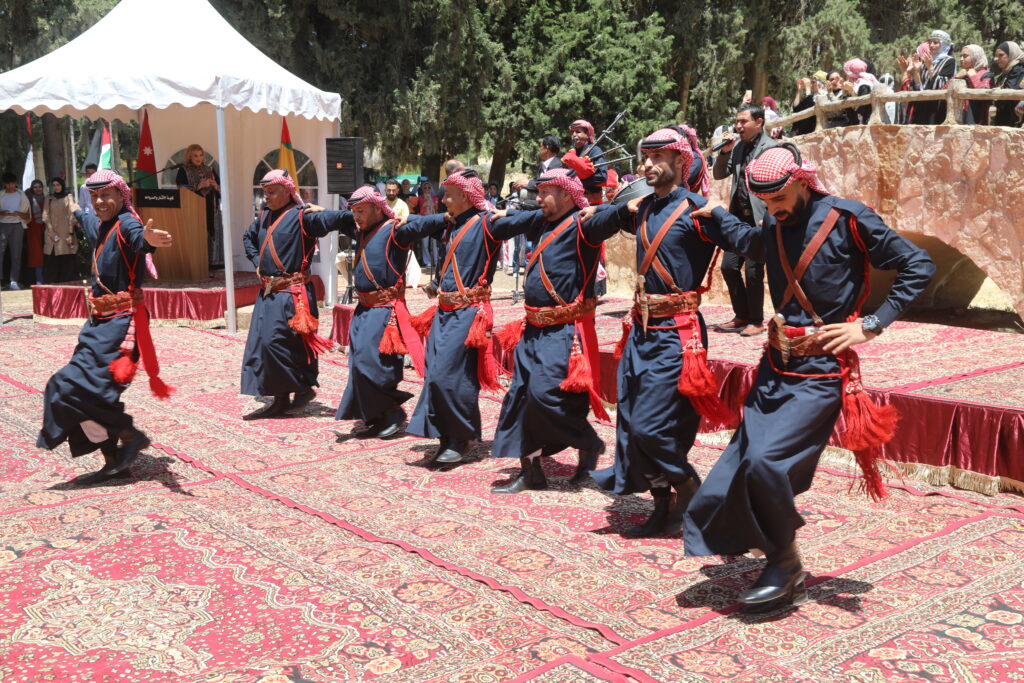
From 2014 to 2024, the USAID-funded Sustainable Cultural Heritage Through Engagement of Local Communities Project (USAID SCHEP), implemented by the American Center of Research (ACOR), worked with partners throughout Jordan to promote a community-first approach to the sustainable preservation, management, and promotion of cultural heritage resources.
Local communities have been the primary stakeholders and beneficiaries of SCHEP programming. SCHEP helped communities around archaeological sites harness the potential of their cultural heritage resources (CHRs) to create opportunities for education, employment, and economic development. At the same time, USAID SCHEP promoted micro-economic growth and diversification of Jordan’s tourism industry by supporting local micro- to small-scale enterprises focusing on cultural heritage and community-based tourism.
In order to support local heritage organizations and institutions, SCHEP also conducted trainings in key skills for heritage professionals and continued to work closely with local entities such as the Department of Antiquities (DoA), Aqaba Special Economic Zone Authority (ASEZA), Wadi Rum Protected Area (WRPA), and the Petra Development and Tourism Regional Authority (PDTRA).
Site Development
Although Jordan is home to over 20,000 documented archaeological sites, most people can only name a few, have visited fewer, and know the history of an even smaller number. SCHEP sought to change that, selecting nine cultural heritage sites across the country to develop, ranging from well-known locations such as Petra to those that had rarely, if ever, received visitors before. Thus, SCHEP was faced with a daunting challenge from the beginning. Given the diversity of the areas the project was involved with, there was no standard model that could be followed to preserve, protect, develop, and promote the sites with the direct involvement of the surrounding communities.
Ethical and effective site development was at the heart of SCHEP’s purpose, and project staff worked to clear and clean each of its related sites, developing paths on which visitors can experience the site and interpretive panels to help people understand what they see before them. These objectives were only carried out after SCHEP conducted surveys and otherwise engaged with local communities to mitigate any negative effects from such interventions.
Although specific forms of intervention necessarily varied from site to site, the ultimate goal was to ensure that each was able to reach its potential as a destination for education, exploration, and community-building.
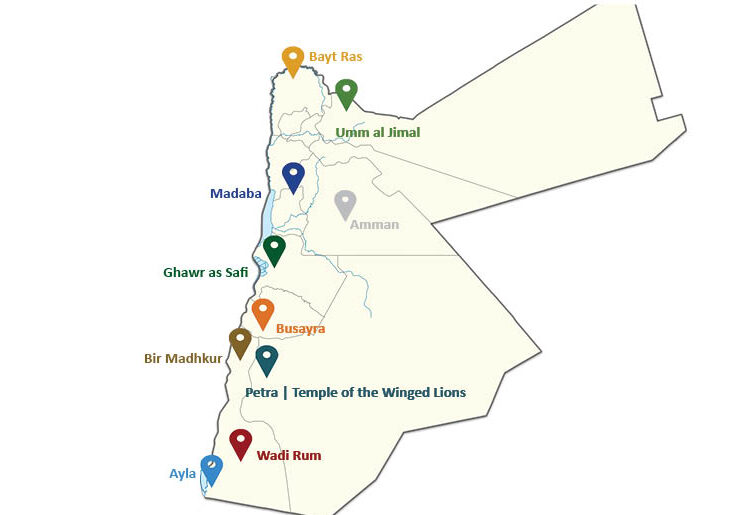
Institutional Development and Capacity-Building
One of the goals of SCHEP from its inception was to make a lasting impact on the way that Jordan preserves, protects, and promotes its rich cultural heritage. To this end, SCHEP sought not to start from scratch, but rather to partner with the people, projects, universities, and government agencies already engaged in these processes. After conducting needs assessments, evaluating past projects, and holding conversations with stakeholders, SCHEP targeted the areas that needed strengthening or new skills that were lacking. The project then began its work on capacity-building through a variety of training courses, conferences, and policy-writing sessions. SCHEP always endeavored to be “needs based” — that is, to impart skills that would actually be useful on the ground. SCHEP training courses and workshops were designed to help partners in cultural heritage become more self-sufficient and better equipped with the knowledge and experience needed to move forward once the SCHEP grant ended.
A significant undertaking that USAID SCHEP supported was the Strategy for the Management of Jordan’s Cultural Heritage 2023–2027. The project provided technical and financial assistance to the DoA and CHR institutions to formulate a new heritage strategy entitled “Strategy for the Management of Jordan’s Cultural Heritage 2023–2027.” This initiative was led by SCHEP and the DoA in partnership with all CHR institutions and relevant stakeholders. The strategy was initially prepared after analyzing documents such as a previous heritage strategy 2023–2027. The analysis was performed on the realities and challenges facing the management and preservation of archaeological heritage, in partnership with all stakeholders.
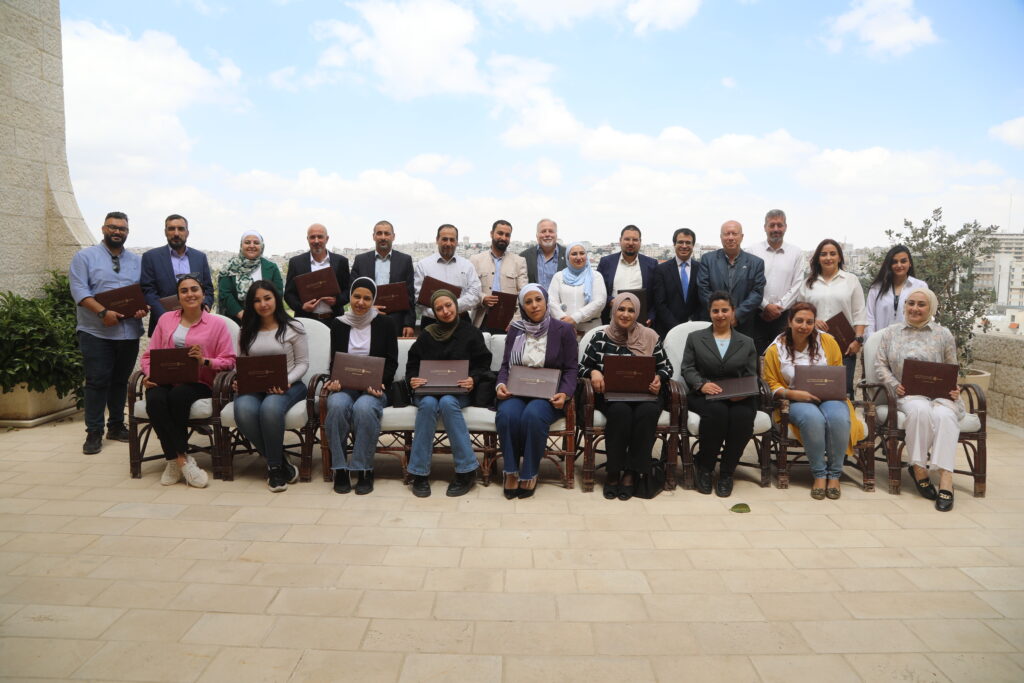
Tourism and Economic Development
Building on the economic momentum generated by Jordan’s growing tourism sector over recent years, SCHEP also worked to support local actors seeking to develop their own enterprises to manage and benefit from their cultural heritage. By 2018, SCHEP had supported the establishment of four local micro- and small enterprises (MSEs) to manage cultural heritage resources and develop tourism products and experiences, attracting new visitors and providing income and employment opportunities for the local community. In Aqaba, Busayra, Ghawr as Safi, and Umm al Jimal, partners and site stewards are now leading their own initiatives and continuing the work that SCHEP started. By connecting cultural heritage to real economic opportunity, SCHEP is able to achieve more significant and sustainable engagement with local communities, enabling them to become partners in preservation.
Supporting the establishment of local companies is not the only way SCHEP has worked to achieve sustainable growth in tourism at its nine affiliated sites and to ensure that they are included on the national tourism map. The team has also worked with organizations such as the Jordan Inbound Tour Operators Association (JITOA) and the Jordan Tourism Board (JTB) to introduce tour operators to the lesser-known sites and produce materials that introduce curious potential visitors to what they have to offer. The project also offered trainings and workshops on site promotion, offering local stakeholders the knowledge and skills they need to turn their local sites into national and international destinations.
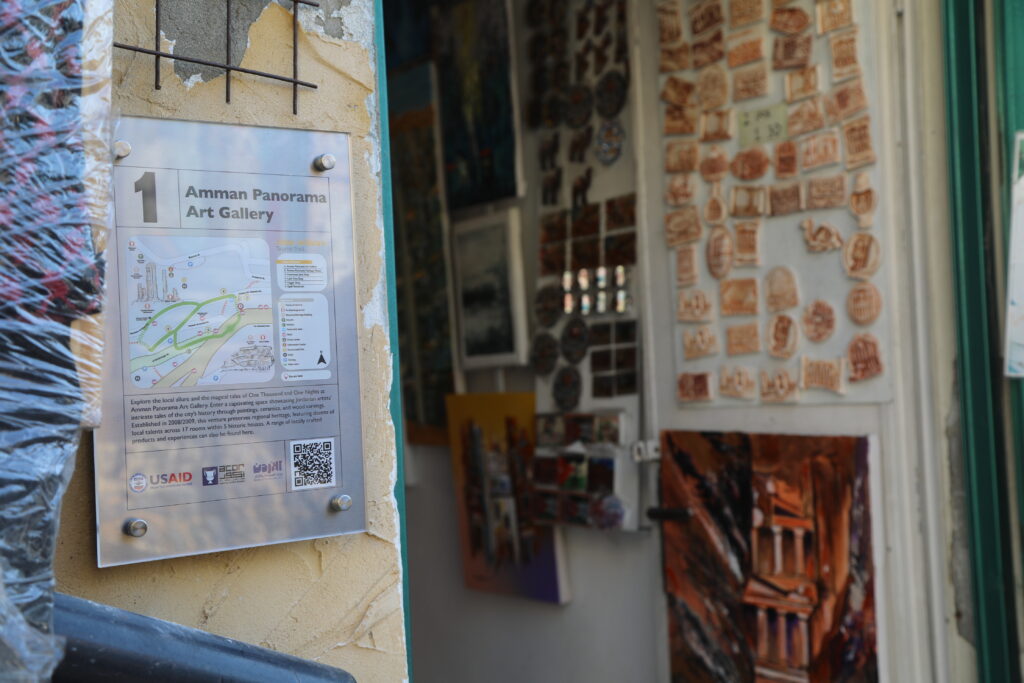
Awareness
Host communities are the ones who determine whether a project will succeed or fail, so building relationships with them was one of the most important aspects of SCHEP. SCHEP was committed first to bringing these stakeholders on board, encouraging all of our project directors to engage with key members of the community and clearly explaining the goals and methods of the project. Once these relationships were formed, SCHEP began its awareness campaign with the rest of the communities, largely targeting youth and families. By sharing with them the value of these sites, both for their history and the material benefits they can provide to the community, SCHEP sought to enlist them as active partners. SCHEP worked to explain value rather than prohibit behaviors, focusing on learning instead of chastising climbing, removing objects, or other actions detrimental to a site. SCHEP then endeavored to foster pride and a close relationship with the site by organizing and supporting visits there. This helped to actualize many of the values the project worked to develop while also associating the site with enjoyment and education. SCHEP developed kinesthetic learning at each site, helping students to feel as though they are a part of the site, whether through writing in the ancient Arabian Thamudic script, making mosaics, or reconstructing pottery. When successful, awareness campaigns brought local communities aboard as part of the project staff, helping SCHEP to guard against vandalism, to encourage visitors, and to share the story of these important sites.
SCHEP’s success is greatly attributable to its dedication to engaging the community. Over 5,500 students from 12 governorates and 41 municipalities have been involved in its interactive programs, promoting local understanding and admiration for archaeology. The focus on disadvantaged and marginalized communities highlights SCHEP’s commitment to inclusivity and making cultural heritage appreciation accessible to all.
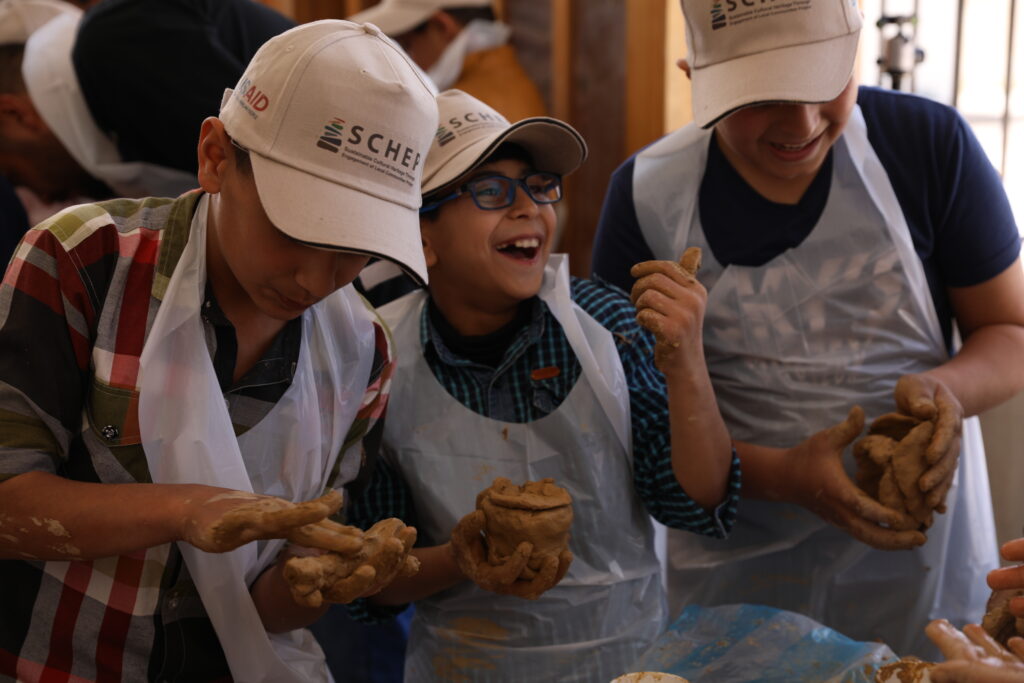
Photo Collection
The USAID SCHEP collection in the ACOR Digital Archive currently houses nearly 7,000 selected photographs and videos. This collection, which is the first born-digital collection and the first collection with fully bilingual English and Arabic metadata in the ACOR Digital Archive, showcases SCHEP-supported site development work at nine sites throughout Jordan, highlighting modern conservation methods and local community involvement. It also includes photographic documentation of awareness, capacity-building, and tourism-development activities, as well as special events such as conferences, lectures, and site inaugurations. Sustainability and knowledge-sharing were key components of SCHEP, and the aim of this collection is to help ensure that SCHEP’s work and its methodology are preserved and made accessible to all for many years to come.
For detailed information about SCHEP’s work from 2014 to 2018, please refer to our publication The Story of SCHEP, 2014-2018. Additionally, for insights into our activities from 2019 to 2024, consult our latest publication, The Story of SCHEP, 2019-2024.
The content described here are made possible by the generous support of the American people through the United States Agency for International Development (USAID). The contents are the responsibility of ACOR and do not necessarily reflect the views of USAID or the United States Government.
Last updated: February 5, 2024
